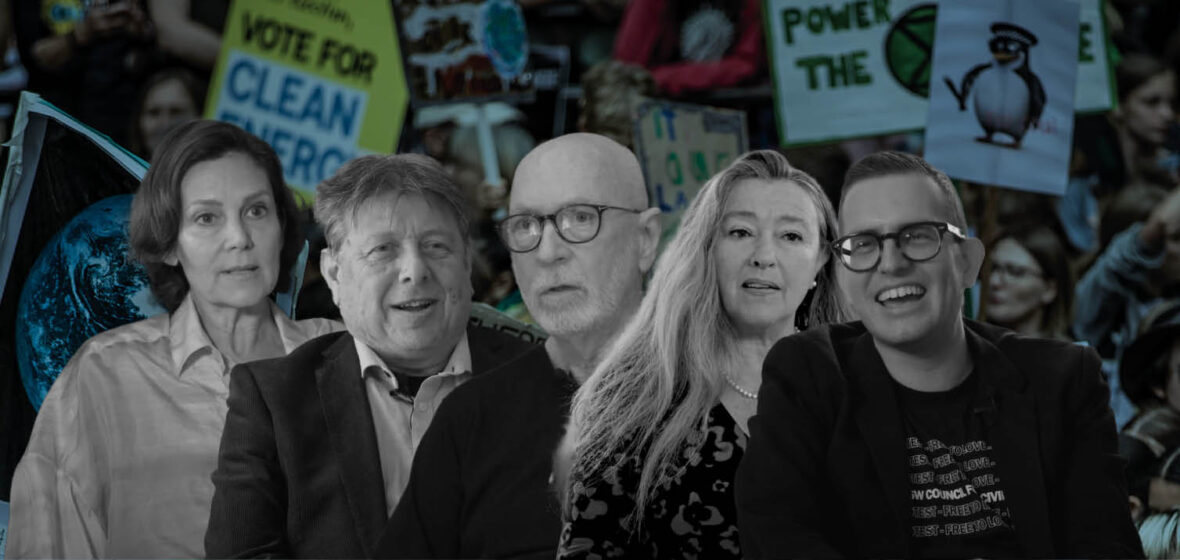In celebration of the NSW Council for Civil Liberties' 60th year, five solicitors recount their experiences in a video series published by the organisation.
It’s 1963, and Australia and the world are in the early years of what would become known as one of the most tumultuous and divisive decades.
The Civil Rights movement in the US reached a pivotal moment as Martin Luther King Jr delivered his iconic ‘I Have a Dream’ speech, inspiring many worldwide to fight for their rights.
Closer to home, conflict in Southeast Asia intensifies and will send more than 60,000 Australians in the coming years to fight alongside their allies in the jungles of Vietnam, sparking a period of mass anti-war protests and demonstrations worldwide.
In Sydney, homosexuality is illegal, media censorship is rife, and police corruption is tolerated by what some describe as an authoritarian government.
Members of the Kings Cross Vice Squad raid a party. Armed with fists, prejudice, no warrant and no good reason, the squad aggressively and excessively intimidate a young group of partygoers, leaving them frustrated, furious and yearning for justice and protection from an unfair system.
The vilified group would go on to form the NSW Council for Civil Liberties (NSWCCL).
Now in their 60th year, five solicitors recount their experiences in a video series published by the organisation. They each detail why they joined the NSWCCL and how it feels to be part of an organisation that believes the right to free speech, the right to come together in peaceful assembly and to protest unfair and unjust laws is essential to a functioning democracy.
Tom Kelly – Member since 1970
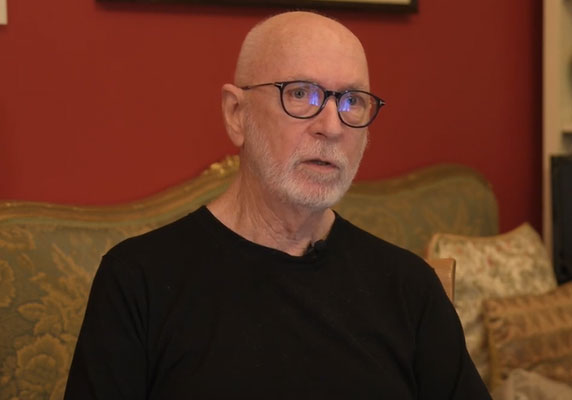
Tom Kelly recalls always being interested in political movements, attending demonstrations when he had time as a law student and joining the NSWCCL after graduating in 1970. He served as a committee and executive member from 1970 to 1980 and was a full-time NSWCCL Solicitor who appeared before the Nagle Royal Commission from 1976-1978.
“There weren’t that many choices around if you wanted to join an organisation that’s going to advocate for good things. I joined the labor party and the council for civil liberties, that was about all that was really of any particular interest, I mean I’m still a member of each and that’s 50 something years ago.”
Kelly describes the 1960s and 1970s as a time of police brutality against demonstrators, minorities, and the vulnerable was the norm and aided by a government’s willingness to look the other way and its fixation on media censorship.
He mentions when US President Lyndon Johnson came to Sydney in October 1966 to drum up support for the Vietnam War as fuel for the fire.
“There was a big demonstration as he drove in a motorcade with premier Askin, and some demonstrators tried to block the access of the car in College Street and Askin is well recorded as telling the driver to ‘run the bastards over’.”
“That’s the sort of government we had, so it wasn’t too hard to be against them, particularly the state government, on those sorts of issues,” Kelly says.
However, Kelly clarifies that he was more of an observer during this time, not wanting to be arrested as he aspired to be a solicitor. With no legal aid available for summary offences, he was on the sidelines, driven and ready to represent people in need.
The Bathurst Batterings in 1970, where correctional officers beat prisoners at Bathurst jail for conducting a non-violent, sit-down protest against their living conditions, drove Kelly to advocate for prison reforms.
In 1974, prisoners at Bathurst jail took matters into their own hands and destroyed the jail. The NSWCCL organised representation for these prisoners, and these incidents would be the catalyst for the Nagle Royal Commission to follow in 1976-1978, where Kelly and his colleagues would represent both the Prison Reform Council and NSWCCL.
“Nagle Royal commission dragged our prison system out of the 19th century into the 20th century” he says proudly.
“One thing it did achieve, if nothing else, is I think the systematic bashing of prisoners and the violence by prison officers is minimal now, certainly not orchestrated like it was.”
Tom Kelly continues to be a NSWCCL member today.
“There weren’t that many choices around if you wanted to join an organisation that’s going to advocate for good things.”
Pauline Wright – Member since 1988
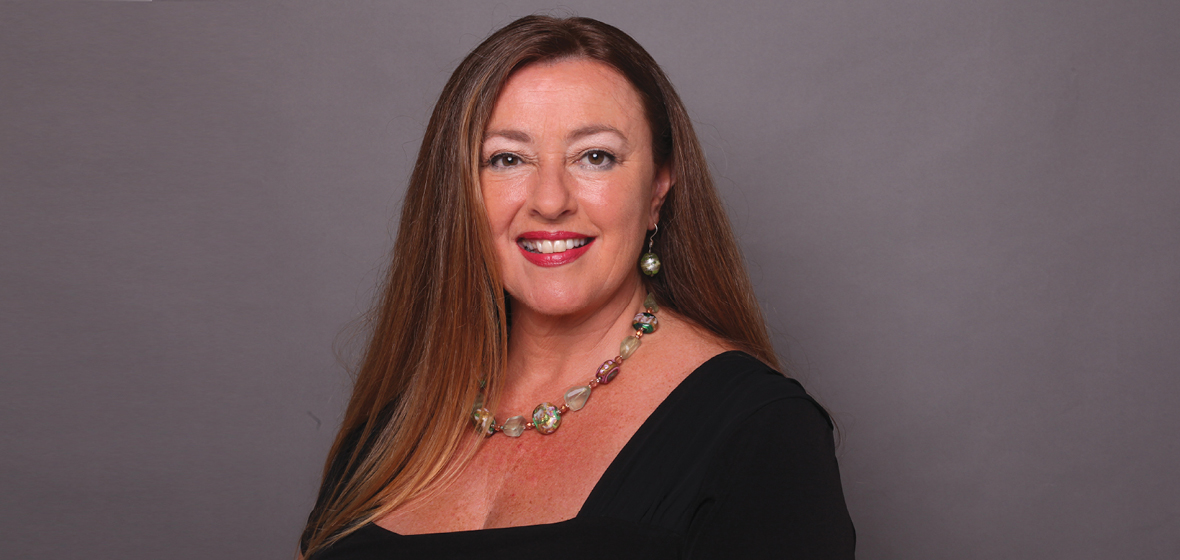
Pauline Wright joined NSWCCL in 1988 after becoming concerned about the extent of police brutality and corruption during her early years as a young criminal lawyer at Marsdens Law Group in Liverpool.
Wright is a past president of NSWCCL, past president of the Law Society of NSW, and a current Committee and Executive member.
“The 1980s was the height of some of those really terrible scandals within the police, police sanctioned murders in King’s Cross and all of that was happening, and that was really the impetus for me to get involved with the Council for Civil Liberties” Wright says.
She credits John Marsden, her former boss and well-known passionate advocate for gay rights, as her inspiration to get involved with the organisation.
“One of his really passionate beliefs was that everyone should be treated equally no matter how disadvantaged they were, no matter their gender or their sexuality. He was a warrior for fairness and justice.”
Wright is happy to be on the right side of history and attributes the amendment to the Marriage Act in 2017 to give same-sex couples the right to marriage to the groundwork laid by John Marsden in the decades prior.
“He [John] really did advocate effectively for homosexual people and that of course laid the groundwork for marriage equality which we finally achieved in 2017. Nobody had a dream it would even happen that year, but it did. And it started at the Mardi Gras, that March.”
Wright is a passionate advocate for voluntary-assisted dying and is proud of what the NSWCCL’s advocacy work has achieved in giving people choice and dignity at the end of their lives.
“I think that it is through that quiet background advocacy that the decision makers have slowly come around to not being afraid to say yes to voluntary assisted dying at least in some forms, and I think we can take some credit for that change.”
On the issue of misinformation, Wright warns that as a society, we need to be conscious of misleading statements in the lead-up to the Voice referendum and believes the NSWCCL has a fundamental role to play in being the gatekeepers of correct and non-political information.
“This shouldn’t be a political issue this is an issue about the civil rights of Aboriginal people in Australia.”
“It should be above politics but unfortunately, it’s descended into the party political and that is a real shame because it means that the population can be divided along party lines.”
Wright hopes the NSWCCL will be more effective in advocating issues for Aboriginal and Torres Strait Islander people in the future. She believes civil libertarians have the tools to cut through the misinformation and send a positive message to encourage people to understand that if one section of society gets better rights, it doesn’t take away the rights of other people in the community but improves them.
“We can have a real role to play in making a clear message that if there is a group that is being disempowered in our society and disadvantaged if we give them more power and more advantage, it doesn’t take it away from the rest of us. It makes life better for all of us because it means more social cohesion.”
“The 1980s was the height of some of those really terrible scandals within the police, police sanctioned murders in King’s Cross and all of that was happening, and that was really the impetus for me to get involved with the Council for Civil Liberties.”
Stephen Blanks – Member since 1993
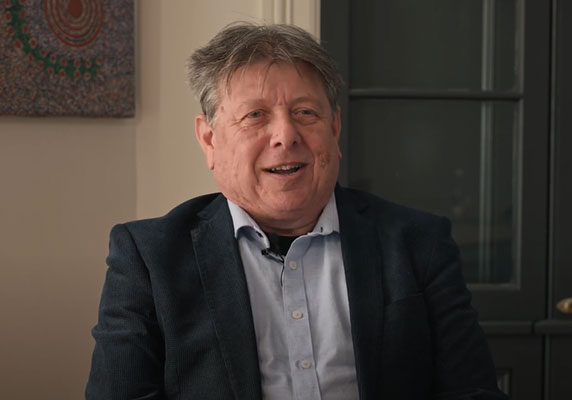
Stephen Blanks joined the NSWCCL in 1993 as a young sole practitioner after one of his clients found themselves in trouble from publishing a book about corruption within the New South Wales National Parks and Wildlife Service and the Australian Customs Service. When both organisations raised defamation claims, all major book chains took the book off their shelves.
Blanks’ client was a small book publisher who couldn’t afford litigation, but he knew he had to do something.
“I thought, well, this is a free speech issue. You can’t have a government Department telling bookshops not to sell a book just because the book is critical,” he says.
Blanks applied to become a member of the NSWCCL, which helped him to arrange a small piece highlighting his client’s situation with the book in the Sydney Morning Herald, which then got picked up as a lead story by the 7.30 program on ABC.
“It was a lead story on Monday night and on Tuesday night the minister came on air and said I’ve directed the department to withdraw that letter, of course bookshops can sell books that are critical of government agencies.”
Blanks credits the NSWCCL with helping his client achieve this victory at no cost.
“That got me thinking as a young lawyer there is more to the practice of law than just litigating and just representing clients in strict legal proceedings and there’s a broader societal interest in a lot of the issues that arise.”
This experience led Blanks to pursue civil liberty interests, including free speech, privacy, and racial vilification, and become a passionate advocate for asylum seekers.
He believes that Australia must do better regarding the treatment of refugees and asylum seekers, saying the government’s mandatory detention policy, a system in place since 1992, is inconsistent with a free society.
“The fundamental problem with Asylum Seeker policy in Australia is the mandatory detention. That breaches one of the most important fundamental human rights, which is protection against arbitrary detention and arbitrary detention is prohibited under all of the international human rights instruments.”
He says when the government decides to detain you, your ability to challenge that in court is extremely limited, with the human cost even more challenging.
“The human cost of this policy has been immense and absurd, people have been in detention for 10 years or more and they come out when they eventually do come out, absolutely ruined. Whereas if they’d been treated properly by Australia in the first place, they would be productive citizens, paying tax, building a future.”
He reflects on one case that he took on against ASIO for a refugee family who arrived by boat and was in detention for three years.
“They had a baby while in detention that was pretty horrendous in terms of the security arrangements then, but eventually through high court action the department decided to release them into the community.”
He says that the family is now thriving and living in the community. The daughter has a scholarship to study law at the Australian National University (ANU).
“The family is doing well and are all Australian citizens now, even though the government at the time said they would never step foot on the Australian Mainland. That is the sort of success story that could be far more common if Australia treated Asylum Seekers and refugees properly.”
“That got me thinking as a young lawyer there is more to the practice of law than just litigating and just representing clients in strict legal proceedings and there’s a broader societal interest in a lot of the issues that arise.”
Michelle Falstein – Member since 2010
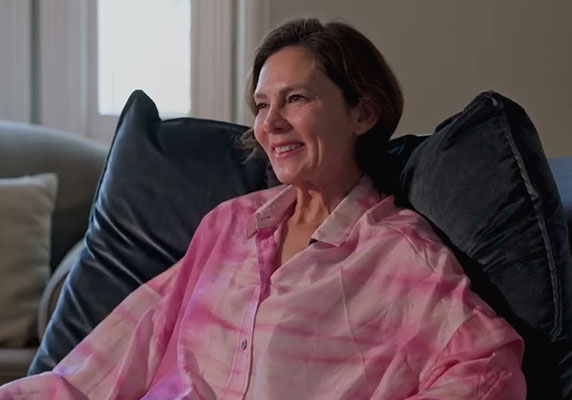
Michelle Falstein has always been interested in civil rights and law reform. She was appalled that abortion had not been decriminalised in NSW and joined NSWCCL in 2010 to advocate for this passionately.
She credits her first project after joining the NSWCCL, involving x-rays shared between the Australian and New Zealand Aviation authorities in the lead-up to the 2011 Rugby World Cup, as the driving force behind her pursuit of privacy issues.
“That kind of piqued my interest in those sorts of things.”
“I was quite interested and involved in things like facial recognition, so the technology behind that and how that affects people, surveillance and data sharing, and I’ve done quite a lot of submissions in those sorts of areas at both federal and state level.”
Falstein speaks of her challenges during the COVID-19 pandemic, especially her involvement with the COVID Safe app.
“Suddenly it was about delegated legislation, emergency powers, closing borders.”
“We were using QR codes to gain access to places and dealing with people who didn’t want to be vaccinated and had to be reassured that their rights were not being abrogated, so it was a lot of hassle.”
With the pandemic making life more digital and Artificial Intelligence and automated decision-making becoming much more sophisticated, Falstein is hopeful that people’s attitudes towards the internet have changed and they understand the risks of sharing personal information online.
“They can receive political messages that are misinformation, they can be marketed things that they don’t necessarily want, and their information can be taken too so that someone can take their ID.”
She says that one of the most incredible things about being part of NSWCCL is the many helpful, dedicated and interesting people involved, as she experienced in her journey from joining the committee in 2018 to being appointed secretary in 2019.
“They all really mentored me into the position and made it as pleasant an experience as it could be considering that it was a role that I hadn’t really filled before.”
“I’ve probably learned more from other people in terms of civil liberties and the challenges of civil liberties and human rights.”
Falstein believes the NSWCCL is an organisation that is going a long way. However, there is still a lot of work needed. Privacy and freedom of speech are critical to achieving autonomy in people’s lives so that they can lead independent, productive, and civil lives without fear of abuse and intervention by the state. However, she is proud that politicians are listening.
“One of the biggest achievements that I’ve noticed lately is that politicians and government organisations want to hear what we have to say, and they’re interested in what we have to say as stakeholders, I think that’s something that’s taken a long time to achieve.”
Falstein’s submissions have dealt with privacy issues in the My Health Record, Identity Matching Services, the non-consensual sharing of intimate images and mandatory drug testing for welfare recipients.
“One of the biggest achievements that I’ve noticed lately is that politicians and government organisations want to hear what we have to say, and they’re interested in what we have to say as stakeholders, I think that’s something that’s taken a long time to achieve.”
Josh Pallas – Member since 2016
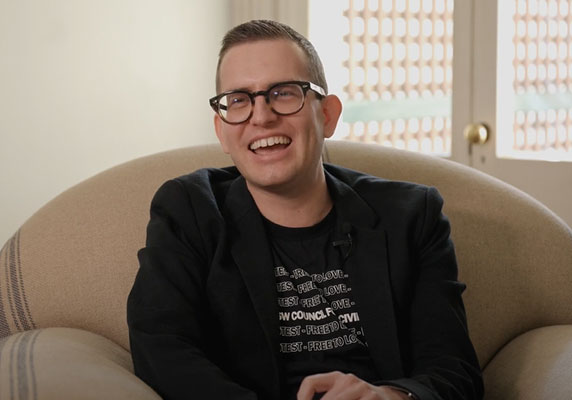
As a student, Josh Pallas says he had never heard of the NSWCCL and only found the organisation through a random university placement in 2014.
While discouraged at first, he would be introduced to a dimension of civil liberties and human rights that he had never considered. It would transform his thinking about politics and how one can contribute to change.
“I wasn’t particularly engaged with progressive politics or human rights very much at the time, I was sort of engaged with the climate movement but that was about it.”
He reported to Stephen Blanks, president of NSWCCL at the time, where he first learned of the privacy issues the organisation raised around the tracking capabilities of the Opal card.
One of his most vivid memories as an intern was attending the functions and meeting NSWCCL members from all walks of life, a world he describes as a bridge between activists and the legal profession.
“There’s all sorts of people, you’ve got sort of aged rat bag activists from the 60s and 70s talking to Supreme Court and high court judges of old and then you’ve got barristers talking to people heavily involved with politics, you’ve got a whole slew of interns and volunteers who are around as well as the committee members.”
He would join the committee in 2017, observe two terms as vice president and be elected president in 2022.
Pallas believes while COVID-19 may have removed their need for a physical office, it has made the organisation more accessible for volunteers from diverse backgrounds or living outside of the CBD. As a member organisation with a diverse membership, he says the committee of NSWCCL extends beyond lawyers and barristers to include philosophers, academics, teachers, and community workers.
He says Australia’s offshore detention “remains one of the most egregious human rights abuses that just endures in this country that nobody is able to adequately address.”
Pallas recalls visiting the United Nations in Geneva, where he attended the Human Rights Council deliberations and encountered the opposing views of how Australia handled refugees and asylum seekers.
“It was front and center of the minds of many at the Human Rights Council at that time because Australia was a member of the Human Rights Council.”
“We were meant to be there enforcing international human rights law, we were meant to be there sitting as judges of international human rights law and our egregious offshore detention policies endured, outcomes for refugees and Asylum Seekers endured.”
The NSWCCL continues to engage with the UN system, put in submissions which he believes the federal government is now far more receptive to international human rights.
“I was a lawyer in practice and a government lawyer I can speak to government, and I can speak to politicians about some of these radical ideas amplifying what people are doing on the streets and supporting what people are doing in the streets at more Grassroots level.”
He is proud of the meaningful change that the protesters from the early 2000s have achieved, pushing for government action on Refugee Rights, decriminalisation of abortion, voluntary assisted dying, and LGBTQI rights.
“It’s just phenomenal to be able to provide that bridge for the more radical actors who really are fronting up to democracy and saying you are not good enough, you remain not good enough, you need to be better, we are going to be in your face and we’re going to challenge you about this.”
He says as long as activists continue to fight for civil liberties, the NSWCCL will continue to support them as they have consistently for the last 60 years.
“We show up for those radicals who are saying we want a better future.”

